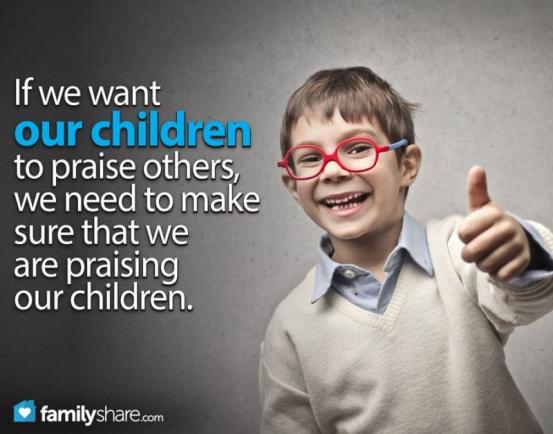
Let's face it, as parents, we all want our children to play nice, but it's not just the playing part that is important to us. Even more importantly, we want our children to actually be nice. We want our child to be the kind of person that talks kindly of others, and to others. We want him to be a person who isn't afraid to give a compliment when it is deserved or needed. Here are some simple ways we can teach our children to praise and compliment others.
Be an example
If we want our child to be kind, then we must be kind. If we want our child to praise others, we need to make sure that we are praising our child. Everyone knows how good praise feels, and children are no different. If a child hears praise from his parents, he will naturally want to share that good feeling with others and be free with his compliments.
Teach compassion and empathy
When a child learns to think about how someone else might be feeling, it is easier for her to understand what the needs of that person might be. The more empathy and compassion our child has, the better able she is to observe others and praise them for those things that are being observed.
When our 7-year-old daughter had to get glasses, our 11-year-old son could see that she was self-conscious. A short time later, when it was just the two of them, I overheard him telling her that she looked really good in her glasses. He told her she had nothing to worry about. It was his compassion and empathy for his sister that led to his thoughtful compliment, which in turn lifted her spirits and brought a smile to her face.
Teach the value of service
This goes hand-in-hand with teaching compassion. but is a separate bullet because it teaches our children the why of praise. Why do we praise others? Because it gives us the opportunity to serve them. It makes a difference in the life of someone else. Not only does it leave the person with a good feeling inside, but it leaves you with a good feeling inside too. It's a win-win situation.
One of the greatest things we can do for our children is to teach them the why of things. Too often, we try to model what we want, without coming out and explaining it, hoping that somehow the universe will align and our children will pick up the right signals and do exactly what we want them to do. Unless you are the perfect parent and you are raising the perfect child, this isn't usually what happens. A lot of confusion and heartache can be avoided when we teach our children the why of things.
Teach your children to be observant
We can teach our children to be observant by giving them opportunities to do so. "Did you see how well your sister made her bed today?"� or "Did you hear how well your brother gave that speech?"� Point out observations that you think they may have noticed and then encourage your children to share their thoughts with one another.
This skill can be practiced anywhere and doesn't always need to have a real person observed for praise to still be given. In an art museum, you can ask what they thought of a certain artist's technique or at the symphony you can ask what they thought of the trumpet solo. Teach children to be observant so they will be more aware of the people around them and more willing to share what they feel and see (genuine praise) with others.
If these ideas seem overwhelming to teach all at once, begin today by doing just one. You can start by resolving to compliment your children daily, or simply talk to them about praise and why we do it. You will find that the more you talk about it and the more you do it, the easier giving praise will become for the whole family.

